In Toronto keynote, Northeastern University president outlines how universities can thrive in an AI-driven world
“This digital world, this AI world, is impacting every aspect of knowledge that we have and every aspect of society,” Joseph E. Aoun told the Canadian Association for Graduate Studies.
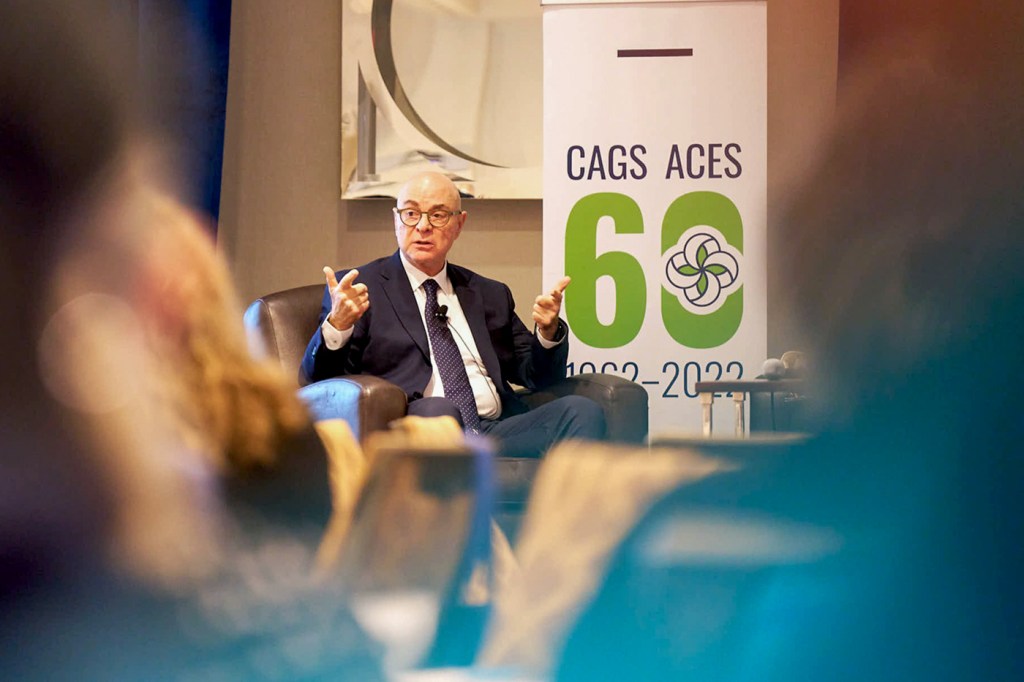
TORONTO — AI chatbots and driverless cars were still futuristic concepts when Northeastern University President Joseph E. Aoun anticipated the impact of artificial intelligence on higher education and society at-large.
More than seven years since the publication of his book, “Robot-proof: Higher Education in the Age of Artificial Intelligence,” Aoun told a packed hall of college students and administrators about how universities could better prepare their graduates for successful and fulfilling careers in an increasingly AI-driven world.
He delivered the keynote address at the Canadian Association for Graduate Studies annual conference at the Sheraton Centre Hotel in Toronto, a leading tech hub and home to one of Northeastern’s 13 global campuses.
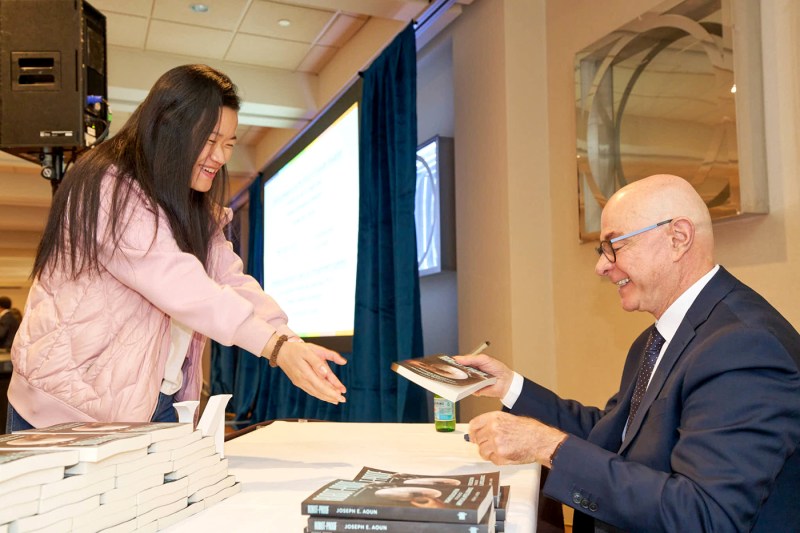
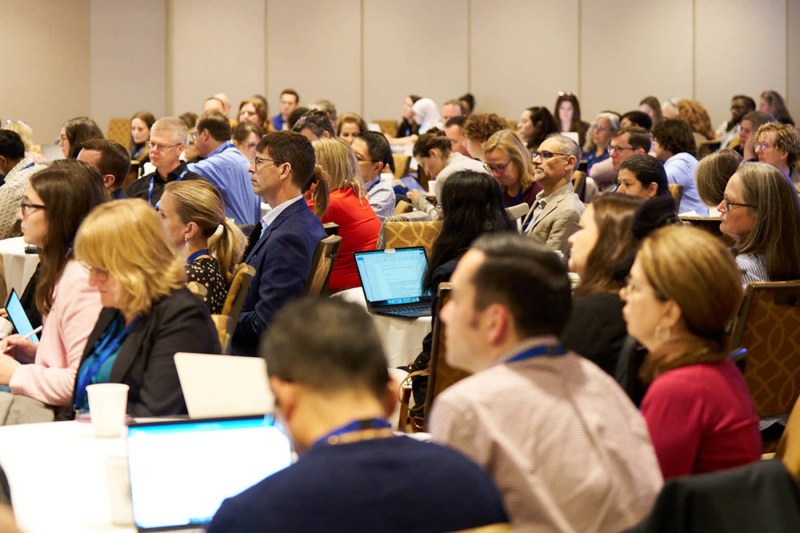
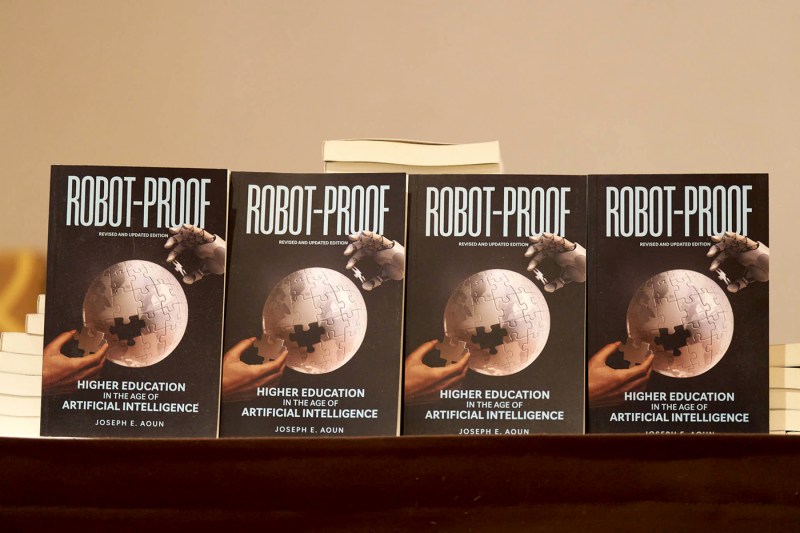
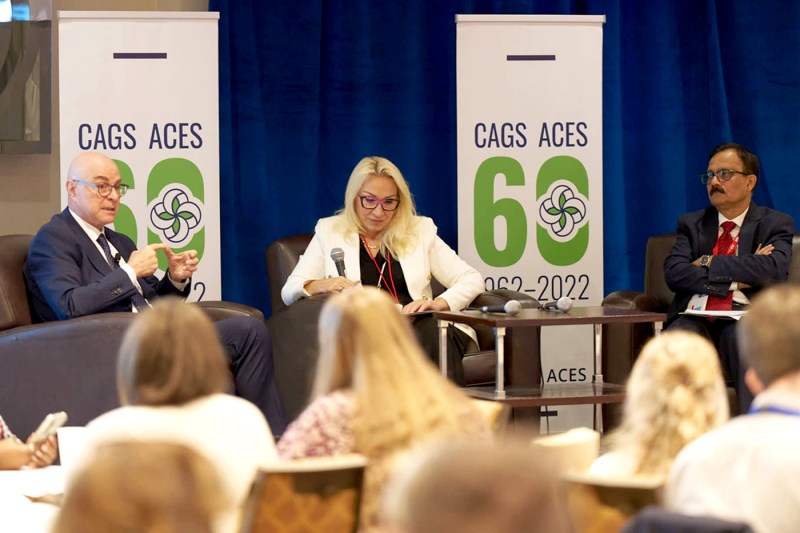
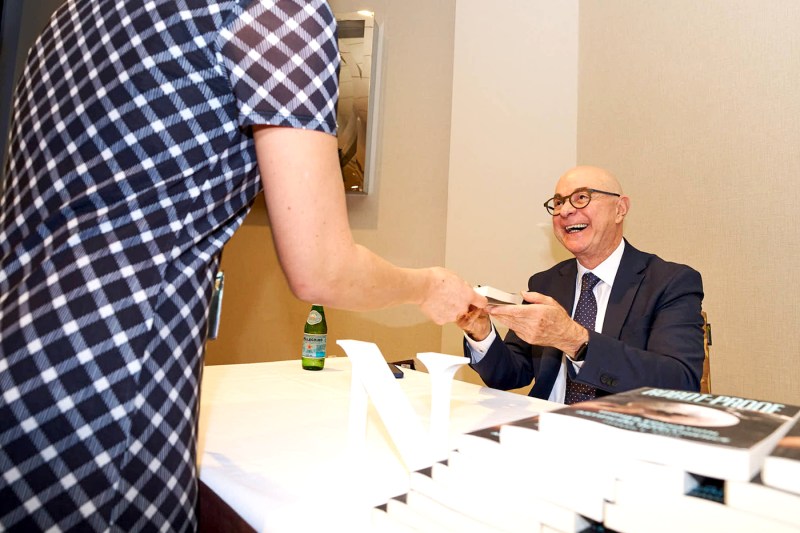
Aoun fielded questions in English and French from the audience and moderators, Fahim Quadir of Queen’s University in Kingston, Ontario, and Effrosyni (Faye) Diamantoudi of Concordia University in Montreal.
“This digital world, this AI world, is impacting every aspect of knowledge that we have and every aspect of society,” Aoun said. “You cannot understand now and work on the physical world without integrating AI.”
New edition of Robot-Proof
This year, MIT Press released a revised and updated edition of Aoun’s book in which he called on colleges to reinvent themselves in order to equip students for the jobs of tomorrow.
While universities are accustomed to delivering undergraduate and graduate programs, a robot-proof education has no fixed start and end points. It is a “lifelong endeavor,” Aoun said, combining literacy in technology and artificial intelligence, data literacy and human literacy — or the traits that currently set humans apart from machines, such as common sense. In his book, Aoun coined the term “humanics” to describe a curriculum based on these literacies.
While Aoun said each university will develop its own approach to adapting to technological change, he offered an example of how Northeastern offers customized professional studies for lifelong learners in Seattle and Silicon Valley.
“The tech industry said that they needed more people in computer science. Can you create a new pipeline?” Aoun said. “We took this challenge and we didn’t know if it was going to work.”
Featured Posts
Northeastern launched the Align Master’s in Computer Science program, which gives students without a background in computer science a direct path to an advanced degree.
One benefit of the initiative was that it allowed more women and minorities to enter an industry in which they have traditionally been underrepresented, Aoun said.
Colleges can also help students differentiate themselves by offering experiential education that connects classroom learning with on-the-job training, Aoun added. Using a term from cognitive science, he said experiential learning encourages “far transfer” — the application of skills learned in one context to another dissimilar one.
“Experiential education is a dimension that distinguishes humans from AI, and humans from machines,” he said.
More than 11,000 Northeastern students participate in experiential learning programs each year in 149 countries and on every continent. The university has a global network of 4,700 employers across various industries.
Aoun’s comments resonated with audience
Aoun’s comments on technology and higher education resonated with Rija Kamran, a Ph.D. student in rehabilitative medicine at the University of Alberta. Kamran’s research focuses on supporting spinal-cord injury patients as they move from an in-patient to community setting.
With the help of a friend experienced in natural-language processing, she analyzed patient transcripts in less than two months — work that would normally take over a year. Now, Kamran is eager to learn natural-language processing techniques herself.
“If I knew it and could combine it with my knowledge of the [rehabilitative medicine] field, I could do so much better,” she said.
Bryan Trudel, dean of studies at the Université du Québec en Abitibi-Témiscamingue, said artificial intelligence represents both an opportunity and a challenge for universities. While ChatGPT raises concerns about plagiarism, AI can also be used to perform tedious but necessary work, he said.
“I see great potential to save hours and hours on tasks like literature reviews,” Trudel said. “That’s months of work that could be done in a few clicks.”
Mary O’Brien, dean of graduate studies and vice provost at Simon Fraser University in Burnaby, British Columbia, described artificial intelligence as a subject of universal interest in academia.
A linguist by training like Aoun, she agreed that humans still had an advantage over machines in some endeavors.
“Of course, a computer can get you information much faster,” she said. “But it’s about conveying that knowledge in a way that can be transmitted meaningfully, understood and appreciated.
“That’s where we as humans definitely win out in all this.”










